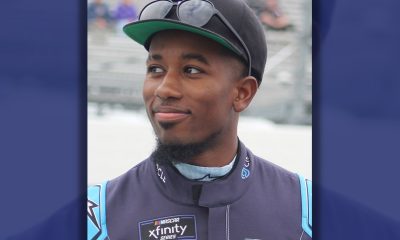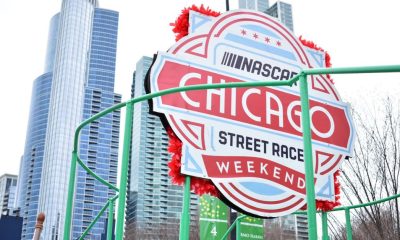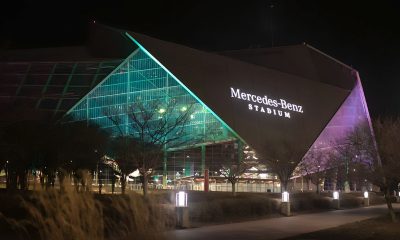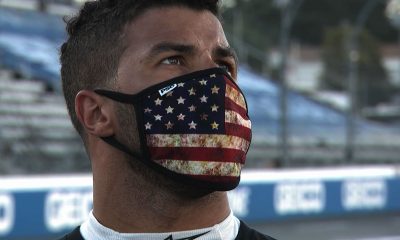Sports
NASCAR Tracks Unite, Ask Fans Not to Fly Confederate Flag

In this Oct. 7, 2007, file photo, a Confederate flags fly in the infield as cars come out of turn one during a NASCAR auto race at Talladega Superspeedway in Talladega, Ala. (AP Photo/Rob Carr, File)
JENNA FRYER, AP Auto Racing Writer
DAYTONA BEACH, Fla. (AP) — NASCAR’s national series tracks announced Thursday that they are asking fans to refrain from displaying the Confederate flag at races following the deadly attack at a South Carolina church two weeks ago.
The facilities vowed to have the most “welcoming environments in all of sports and entertainment.”
The statement was signed by International Speedway Corp. and Speedway Motorsports Inc. — which own most of the tracks in the Sprint Cup Series, stretching from Florida to New York to California — as well as 30 specific tracks. It also includes independent tracks such as Tony Stewart’s Eldora Speedway in Rossburg, Ohio, Pocono Raceway and Canadian Tire Motorsport Park.
“We are asking our fans and partners to join us in a renewed effort to create an all-inclusive, even more welcoming atmosphere for all who attend our events,” the statement read. “This will include the request to refrain from displaying the Confederate flag at our facilities and NASCAR events.”
The move follows NASCAR’s statement last week reiterating that the flag is banned from official use at its events. And it comes ahead of Sunday’s race at Daytona International Speedway — the first in the South since the mid-June attack that left nine black churchgoers dead in Charleston. The suspect had embraced Confederate symbols, including the battle flag.
Daytona is planning to hold a voluntary exchange program this weekend in which fans can swap any flag of their choice for an American flag.
“We want to be inclusive to everyone, and the last thing you want is for anyone to come to a sporting event and really not enjoy that experience because of symbols that really represent things we’re not proud of,” track President Joie Chitwood said. “Going forward, we’ll really have to look at where that other flag goes, because it doesn’t have a place in our sport and we’ve got to take a thoughtful process on how we get to that place.”
ISC, a sister company of NASCAR, owns 13 facilities that signed the statement. SMI, the Bruton Smith-owned rival to ISC, had its eight properties listed as supporting NASCAR. Indianapolis Motor Speedway was among the independents taking part.
Drivers including Dale Earnhardt Jr. have been outspoken against the flag. NASCAR Chairman Brian France last week called the flag a symbol he finds offensive and said he wants to be as aggressive as possible in barring it from sanctioned events.
France said he was unsure what steps track promoters can legally take to prohibit the flag and acknowledged that enforcing a ban would be challenging when it comes to tens of thousands of fans on the sprawling properties. France stressed that the flag, while part of NASCAR’s roots as a series for old bootleggers, is not indicative of what the sport represents and he had hinted that the series was working with the industry on options.
“Obviously, we have our roots in the South, there are events in the South, it’s part of our history like it is for the country,” France told The Associated Press. “But it needs to be just that, part of our history. It isn’t part of our future.”
Copyright 2015 The Associated Press. All rights reserved. This material may not be published, broadcast, rewritten or redistributed.
Activism
McClymonds High Names School Gym for Star Graduate, Basketball Legend Bill Russell
William “Bill” Felton Russell was born on Feb. 12, 1934, and died on July 31, 2022. He achieved fame as a U.S. professional basketball player who played center for the Boston Celtics of the National Basketball Association (NBA) from 1956 to 1969. He was the centerpiece of the Celtics dynasty that won 11 NBA championships during his 13-year career.
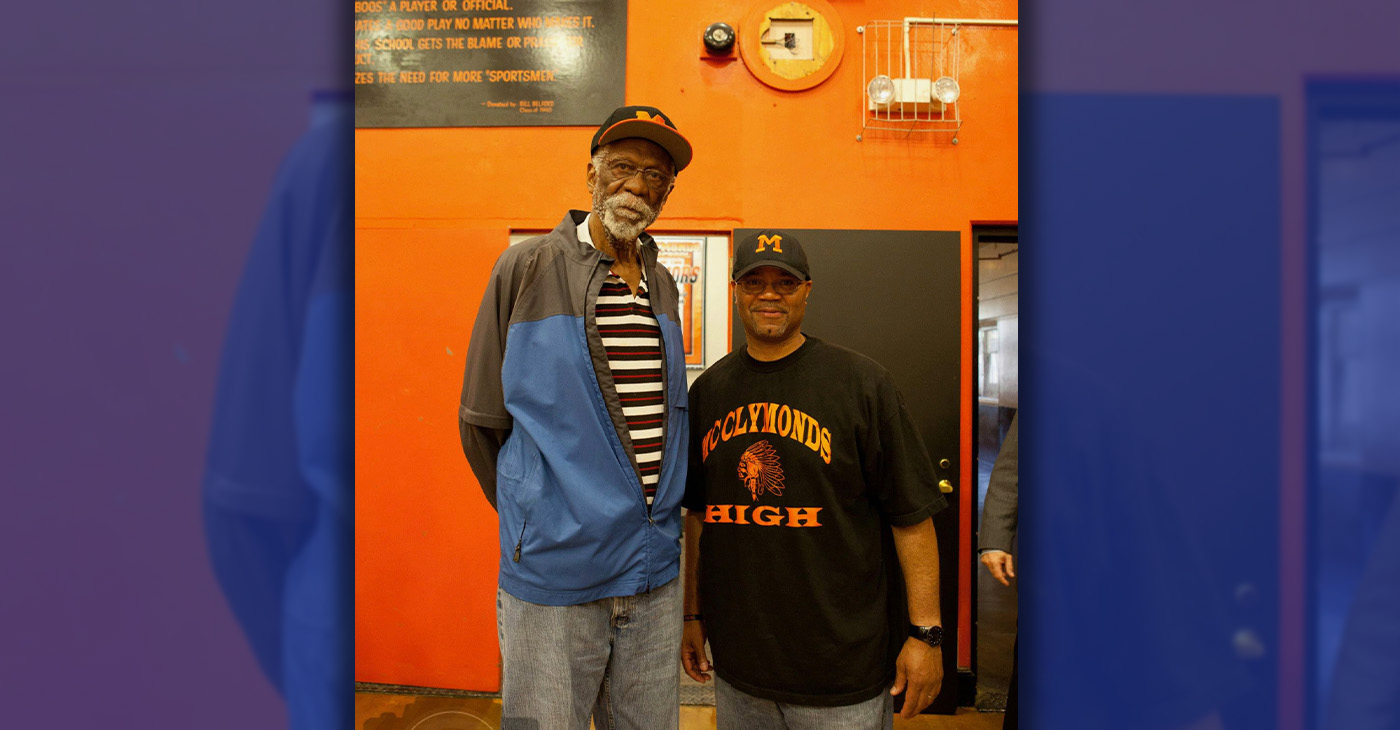
By Ken Epstein
West Oakland’s McClymonds High School, “the School of Champions,” this week named the school’s gymnasium in honor of one of its most famous graduates, basketball legend Bill Russell (class of ’52).
William “Bill” Felton Russell was born on Feb. 12, 1934, and died on July 31, 2022. He achieved fame as a U.S. professional basketball player who played center for the Boston Celtics of the National Basketball Association (NBA) from 1956 to 1969. He was the centerpiece of the Celtics dynasty that won 11 NBA championships during his 13-year career.
Russell is widely known as one of the greatest basketball players of all time. In 2011, he received the Presidential Medal of Freedom, the country’s highest civil honor, from President Barack Obama for Russell’s contributions to basketball and the Civil Rights Movement.
The McClymonds’ naming ceremony was held on Wednesday, the same day as Russell’s birthday. Oakland leader Bill Patterson, a longtime friend of Russell’s, was scheduled to cut the ribbon at the reopening of the gym, which had been closed for several months for renovation. Russell’s daughter Karen was scheduled to attend the ribbon cutting.
Russell’s name and signature are now printed on the gymnasium floor.
Patterson was working at DeFremery Park when he met Russell. “I befriended him as a boy and during his years at University of San Francisco” said Patterson. “We stayed friends for the rest of his life.”
Said McClymonds Principal Darielle Davis, herself a McClymonds graduate, “We are excited to honor Bill Russell for his sports accolades and because he broke color barriers. He is part of our legacy, and legacy is really important at McClymonds.”
Brian McGhee, community schools manager at McClymonds and former football player at UC Berkeley, said that Russell meant a lot to him and others at the school. “He was a beacon of light and hope for West Oakland,” he said. “He did a lot for sports and for civil rights.”
Starting in 2018, Ben “Coach” Tapscott worked with Patterson and other McClymonds grads, community members, and former coaches to encourage the Oakland Board of Education to endorse the naming of the school gym, which finally happened recently.
“We worked hard to make this happen,” said Tapscott. “He’s an important part of McClymond’s history, along with a lot of other famous graduates,” he said.
Activism
OPINION: Politics, Football and Identity in Trump’s America
If you haven’t noticed, all Americans are engaged in an even bigger game that means so much more than the Super Bowl. Our democracy is falling apart.
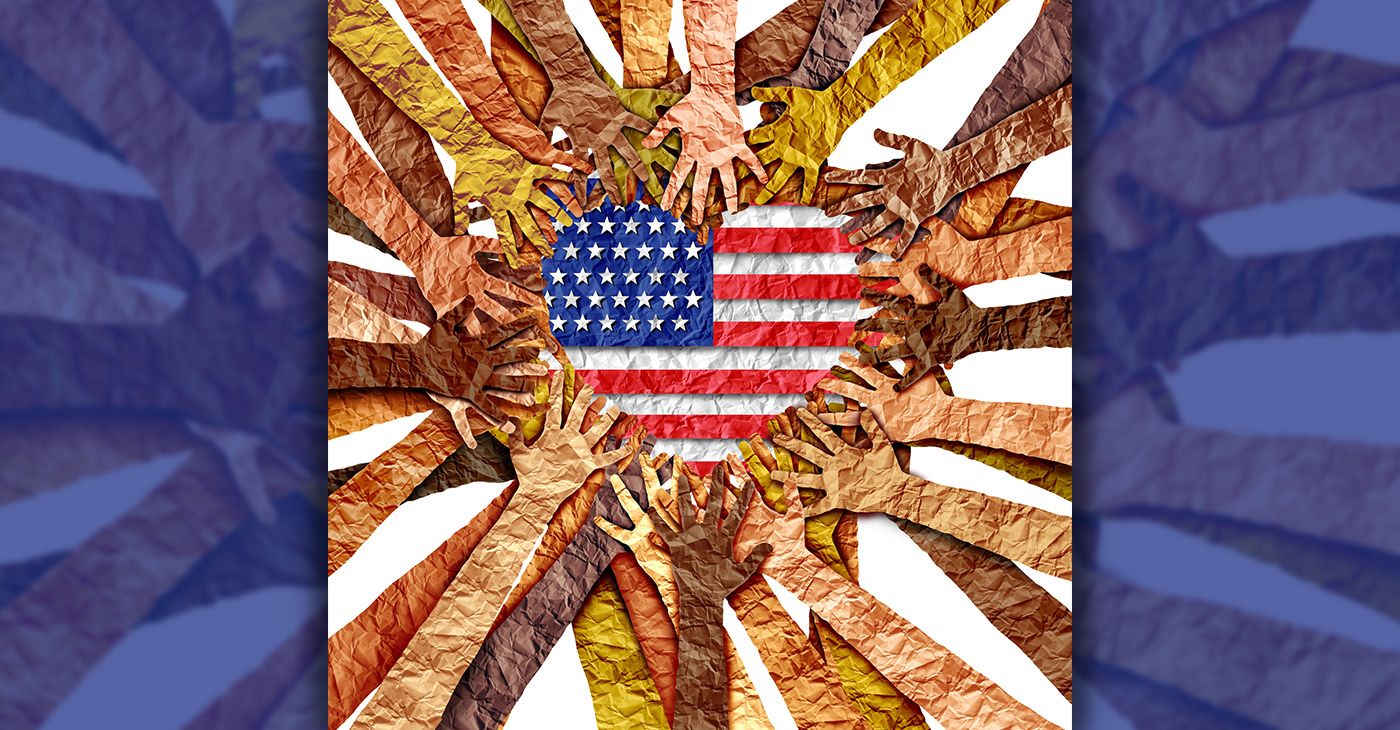
By Emil Guillermo
Two Filipino American stories made headlines recently.
First, Nikko Remigio, the Filipino and African American kick returner for the Kansas City Chiefs, did not win Super Bowl LIX.
The other, Alameda’s Rob Bonta said no to running for governor. I don’t blame him. It’s not like a mass of people wanted him to run.
But I did.
Whenever there is a Filipino American in a place you don’t expect, I’m rooting for that person.
As California’s Attorney General, Bonta is probably the most active defender among Blue States pushing back against Trump’s Extreme-Right agenda.
I’d like to Bonta run for California’s top job, but he’s better off waiting in line. The Democrats need a spot for Kamala Harris, and Bonta not running obliges the hierarchy.
History can wait. Bonta’s just 52.
Harris has held off speculation of her next move, saying she just moved back to the state. But it seems governor is the path for her.
For now, Bonta needs to continue taking the fight to Trump in the courts.
Football and Identity Politics
My dad, whose birthday would have been Super Bowl weekend, came to the US in 1928 as a colonized Filipino, an “American National,” where he couldn’t be a citizen, vote, own property or even marry the person he wanted.
Not if they were White.
Still, he believed in America. He never gave up.
Sort of like Nikko Remigio.
My dad would have loved Nikko.
If you haven’t noticed, all Americans are engaged in an even bigger game that means so much more than the Super Bowl. Our democracy is falling apart.
You want to get passionate about Eagles and Chiefs?
Let’s be passionate about our Founding Fathers, too.
Nikko didn’t change the game. He touched it three times and provided more yards than all of KC’s running backs.
That’s all I needed to see.
He’s our Filipino guy.
Detractors may call it “identity politics.”
People don’t seem to understand the fight for visibility. To be recognized. To be seen. It’s all wrapped up in the big idea of Civil Rights.
I was nowhere near as good as Nikko when I played. But when you are blessed to play football, you play your hardest.
For me, that was when I was 12 and 13 playing Pop Warner football in San Francisco. I was MVP for my team as a running back.
But I was ashamed of my dad. He wasn’t like the other dads. And I remember going to the team banquet to retrieve my trophy alone.
I didn’t realize it probably meant more to him than I thought.
I wish I had shared my MVP moment with him like Nikko shared his joy with his dad, Mark, born in Seattle to two Filipino immigrants, and his mom, whose mixture of Black and White made Nikko the picture of diversity.
Filipino American and Black and White at the Super Bowl.
But don’t forget, there is one game bigger.
The Super Bowl for Democracy. We’re battling for it every day Trump pushes a cockamamie idea that shakes the foundation of our Democracy.
About the Author
Emil Guillermo is an award-winning journalist and commentator. Watch his micro-talk show “Emil Amok’s Takeout/What Does an Asian American Think?” on www.YouTube.com/emilamok1 Or join him on http://www.patreon.com/emilamok
Bay Area
Tina Thompson: Champion, Legend, and Pioneer of Women’s Basketball
Known for her signature red lipstick, Thompson displayed confidence and style on the court, becoming an icon both for her gameplay and her individuality. Her ability to score from anywhere on the floor, combined with her defensive prowess, made her one of the league’s most formidable players.
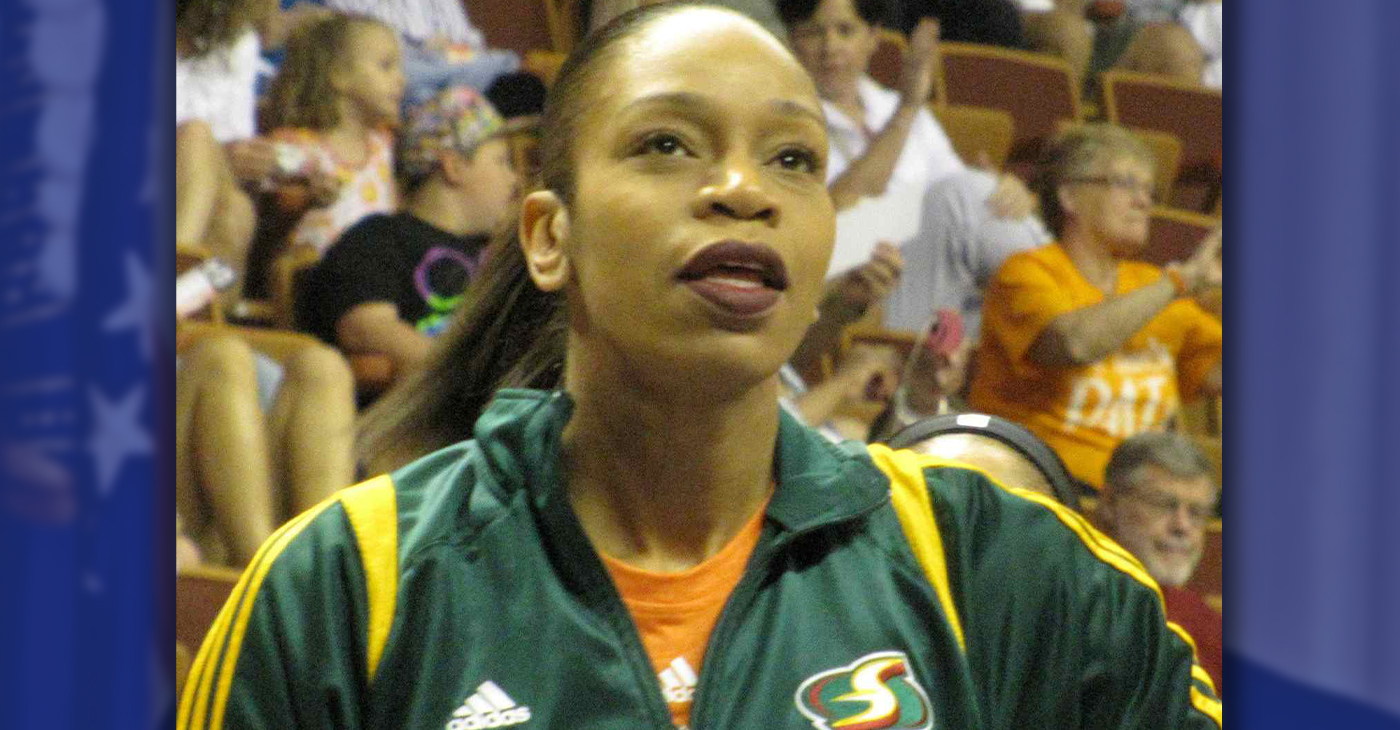
By Tamara Shiloh
The establishment of the Women’s National Basketball Association (WNBA) in 1996 was a turning point for women’s sports, creating a professional platform for female basketball players to showcase their skills at the highest level. Among the trailblazers who helped launch the league, Tina Thompson stands out as the first African American woman drafted into the WNBA.
Tina Thompson was born on February 10, 1975, in Los Angeles, California. Raised in a basketball-loving household, she quickly developed a passion for the game. Thompson improved her skills on the playgrounds of South Central Los Angeles, often playing against boys, which toughened her game and fueled her competitive edge.
She attended the University of Southern California (USC), where she became a standout player for the Trojans. Known for her versatility, scoring ability, and relentless work ethic, she earned All-Pac-10 honors multiple times and cemented her reputation as one of the top collegiate players in the nation.
When the WNBA held its first-ever draft on April 28, 1997, Tina Thompson made history as the league’s first African American player to be drafted. Selected as the first overall pick by the Houston Comets, she joined a team that would go on to dominate the early years of the WNBA.
Tina’s selection was a historic moment, symbolizing the league’s commitment to showcasing diverse talent. As a Black woman in a pioneering role, Thompson carried the hopes of aspiring African American female athletes who dreamed of playing professional basketball.
Tina wasted no time making an impact in the WNBA. As a key member of the Houston Comets alongside legends Cynthia Cooper and Sheryl Swoopes, she helped lead the team to an unprecedented four consecutive championships from 1997 to 2000. The Comets’ dynasty became the gold standard for excellence in the league’s early years.
Known for her signature red lipstick, Thompson displayed confidence and style on the court, becoming an icon both for her gameplay and her individuality. Her ability to score from anywhere on the floor, combined with her defensive prowess, made her one of the league’s most formidable players.
Over a career spanning 17 seasons, Tina established herself as one of the WNBA’s all-time greats. She retired as the league’s leading scorer, a record she held until it was broken by Diana Taurasi. She was a nine-time WNBA All-Star and was named to multiple All-WNBA teams, cementing her status as one of the sport’s legends.
In 2018, Thompson’s contributions to basketball were recognized with her induction into the Naismith Memorial Basketball Hall of Fame. The honor underscored her influence not just as a player, but as a trailblazer for African American women in sports.
After retiring from professional basketball, she transitioned into coaching, using her experience and knowledge to mentor young athletes. She has served as a head coach at the collegiate level, inspiring the next generation of players to pursue excellence both on and off the court.
As a role model and advocate, Thompson has consistently emphasized the importance of education, empowerment, and self-belief. Her story resonates with countless young women who see in her the embodiment of perseverance and success.
Tina Thompson is presently in her third season as an assistant coach at the University of Texas at Austin.
-

 #NNPA BlackPress4 weeks ago
#NNPA BlackPress4 weeks agoTarget Takes a Hit: $12.4 Billion Wiped Out as Boycotts Grow
-

 Activism4 weeks ago
Activism4 weeks agoUndocumented Workers Are Struggling to Feed Themselves. Slashed Budgets and New Immigration Policies Bring Fresh Challenges
-
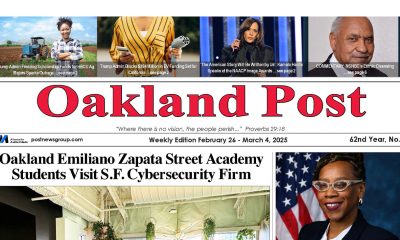
 Activism4 weeks ago
Activism4 weeks agoOakland Post: Week of February 26 – March 4, 2025
-

 #NNPA BlackPress4 weeks ago
#NNPA BlackPress4 weeks agoBREAKING Groundbreaking Singer Angie Stone Dies in Car Accident at 63
-

 #NNPA BlackPress4 weeks ago
#NNPA BlackPress4 weeks agoNAACP Legend and Freedom Fighter Hazel Dukes Passes
-

 Arts and Culture4 weeks ago
Arts and Culture4 weeks agoBeverly Lorraine Greene: A Pioneering Architect and Symbol of Possibility and Progress
-

 #NNPA BlackPress4 weeks ago
#NNPA BlackPress4 weeks agoTrump Kicks the Ukrainian President Out of the White House
-

 #NNPA BlackPress4 weeks ago
#NNPA BlackPress4 weeks agoApple Shareholders Reject Effort to Dismantle DEI Initiatives, Approve $500 Billion U.S. Investment Plan


